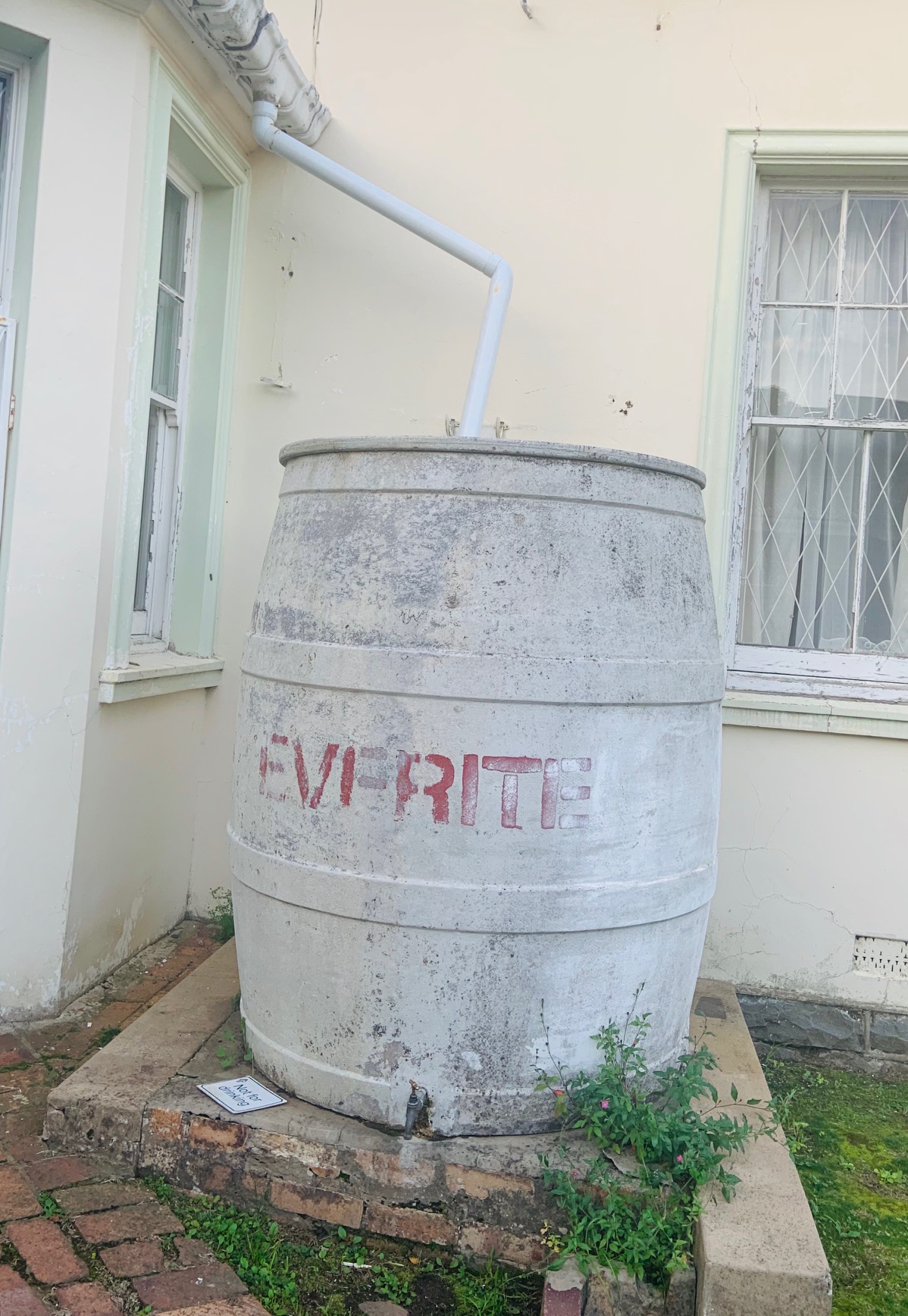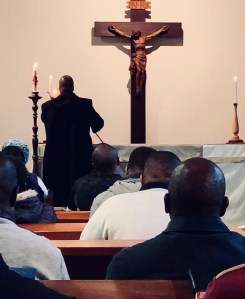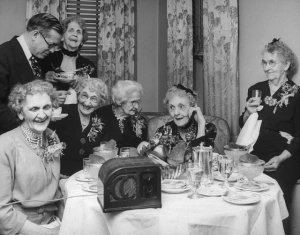
Outside my window, a groundskeeper in a royal blue work uniform chips away at a 4-foot tall water tank, chip by chip as if peeling a difficult boiled egg. Dirty water drains from the half-destroyed tank, running down the path into a narrow brick-lined culvert toward the seminary offices.
Suddenly correction arrives in a Scottish accent: “We can’t let that water run,” the Scotsman tells the worker. “There’s a drought; capture that water in a bucket.” The two men exchange words. The groundskeeper asks where to put buckets water after he’s collected them. It’s a very polite back and forth for what appears to be a serious disagreement about dirty water. Then the Scot leaves and the worker continues breaking up the old tank.
As I wrote in a recent post, Laundry Cottage South Africa, I’m on a brief cultural exchange at the College of the Transfiguration (COTT), an Anglican seminary in Makhanda, (until recently, Grahamstown) South Africa. COTT is the only provincial residential college of the Anglican Church of Southern Africa. The seminary prepares men and women from South Africa, eSwatini, Lesotho, Mozambique, Angola, Namibia and St. Helena for priestly ministry.
The future of Christianity is African as this Pew Research study suggests. Many of Christianity’s future leaders are educated at this very seminary, located at the epicenter of a serious water crisis. Makhanda is in the 3rd year of a a “green drought”. The grass is still growing and the flowers are blooming as we head into the southern hemisphere’s winter. But the reservoir that serves Makhanda, Settler’s Dam, is dangerously low—at 11% capacity. When the water shrinks to 8%, it can no longer be drawn.
With 65 students and about 20 faculty and staff and their families,, water is essential to the seminary’s functioning. In February, the seminary began fundraising for new water tanks. In April, the dam ran dry. The taps stopped flowing.
Think of it-—turning on the tap and nothing happens.
With no way to provide for basic needs, preparing food, bathing or washing clothes, the students were sent home for a month until enough rain fell to bring them back. It is not uncommon for students to travel 10, 12 or 14 hours by bus to get home, an expensive and disruptive event.
I am a native of Arizona, where politicians haggle with neighboring states over water rights to the Colorado River while developers blithely raze the desert and carpet the landscape with new, water thirsty golf courses. Here in Makhanda, however, the water crisis is no longer theoretical. Even the municipal water that is piped in from Settlers Dam is not potable. Everyone here keeps a plastic jug full of water in their room and makes a trip to a market in town where clean water is dispensed.

Students wash clothes by hand, shower less often, and keep a bucket in the shower to capture excess water to use later for flushing toilets.
O God, you are my God; earnestly I seek you; my soul thirsts for you; my flesh faints for you, as in a dry and weary land where there is no water. Psalm 63:1
Thus far, COTT has raised enough funds to purchase 15 water tanks—bright green tanks shiny as Fisher-Price toys but on an immense scale. A total of 70-80 tanks are needed to keep the college running with a 2-month back-up supply of water. Installation of these tanks includes replacing gutters to ensure captured rain water remains as clean as possible, removing the old pressed asbestos tanks, creating new foundations and placing the new tanks. I know this because I watched the man in blue do just this outside my window. It’s slow, hard work.
For the seminary to function, it can’t rely on the dwindling reservoir neither on municipal water which is mired in political machinations. COTT’s next goal is to raise the funds to drill their own well (or bore-hole as it is referred to here.) Having their own well would ensure that courses will continue uninterrupted, theology taught, and priests formed in the faith.

This is not a doomsday scenario, but rather a present tense drought affecting much of Southern Africa and impacting day-to-day life. Could you help supply water to a weary land?
Please consider donating at the Water is Life page here. Your donation goes directly to the College of the Transfiguration, and will help to create a campus water infrastructure that ensures the education and well-being of the seminarians. Those same seminarians will go on to preach the gospel and care for souls in South Africa and beyond.

